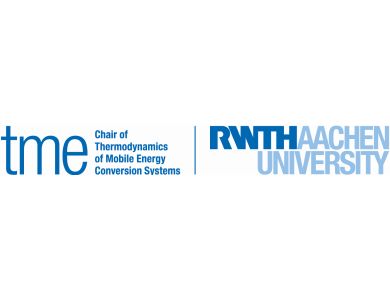The RWTH Aachen University (RWTH), established in 1870, is divided into nine faculties. Currently around 45,000 students are enrolled in over 150 academic programs. The number of foreign students (10,455) substantiates the university´s international orientation. Every year, more than 7,000 graduates and 800 doctoral graduates leave the university. 564 professors as well as 5,695 academic and 2,834 non-academic colleagues work at RWTH University. The university budget amounts to 948 million Euros, of which nearly 360 million Euros are funded by third parties. Moreover, special field research, 34 graduate colleges, among them 10 founded by the German Research Foundation, 15 affiliated institutes with strong industrial alignment, 4 Fraunhofer institutes and one Leibniz institute illustrate the university´s considerable research potential.
Institute for Combustion Engines (VKA)
The Institute for Combustion Engines (VKA) of RWTH Aachen University – under direction of Prof. Dr.-Ing. Stefan Pischinger – and the Chair of Technical Thermodynamics (LTT) form the Institute for Thermodynamics, which is located within the Faculty of Mechanical Engineering of RWTH Aachen University.
At the Institute for Combustion Engines mainly fundamental research projects, but also applied research issues concerning the vehicle powertrain are elaborated. Research focuses on the investigation of flow analysis, fuel preparation and combustion with the purpose of energy saving and engine-related avoidance of emission generation as well as on exhaust gas aftertreatment with the help of catalysts and particle filters. Moreover, alternative fuels like natural gas, alcohol fuels and hydrogen with respect to their use in vehicles are examined. Further main areas are innovative engine designs, the examination of engine friction and of the acoustical behavior of combustion engines. In addition, actual research projects concentrate on hybrid powertrain concepts and fuel cell systems. The Center for Mobile Propulsion (CMP) supported by DFG (German research funding organization) provides a newly and worldwide unique testing center, where different testing facilities are connected and able to communicate via a fast real time network.

Located in Aachen, Germany
Visit the Website
Particularly for LONGRUN, the institutes’ experiences in connected driving, predictive operating strategies for hybrid-electric vehicles and Real Driving Emission (RDE) powertrain development comes into account. The usefulness of the applied tools, facilities and measurement techniques that are required to obtain the project goals has been demonstrated in previous projects already.